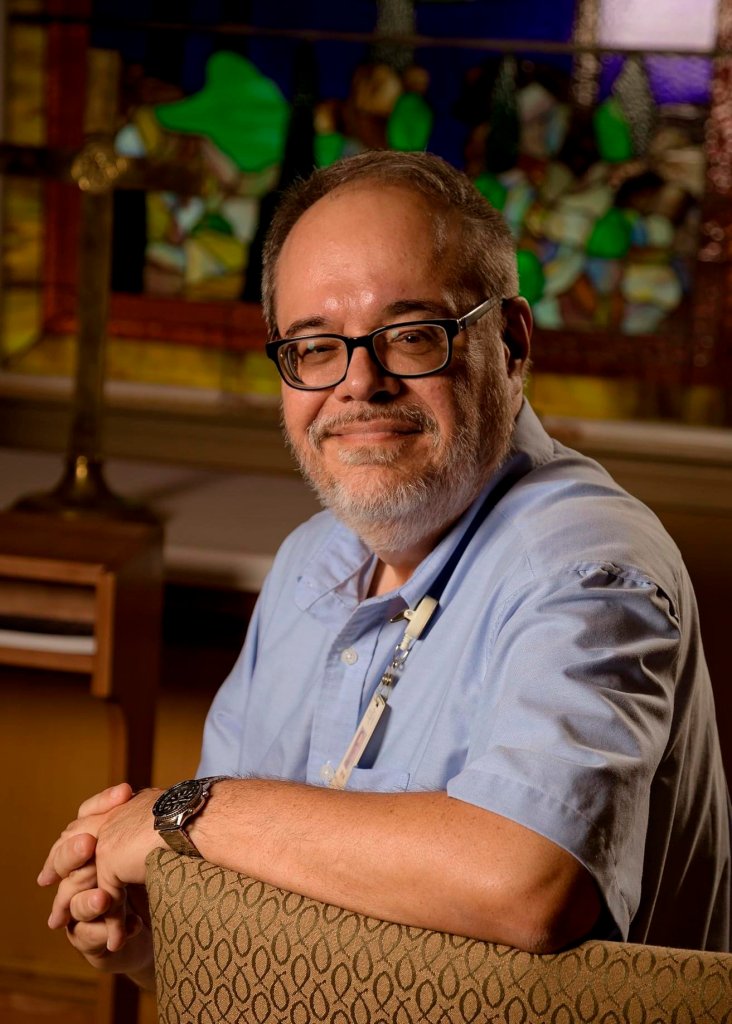A Chaplain’s Story: May shares experiences with hospice patients
Published 11:00 am Monday, November 1, 2021

- Submitted photoJeff May serves as chaplain of Hospice of South Georgia.
VALDOSTA – As Pastoral Care Week ends and National Hospice and Palliative Care Month begins, the Hospice of South Georgia wanted to give people a closer look at its chaplains.
That look begins with consent, Chaplain Jeff May said. And why? Because first and foremost the primary objective is care.
We don’t want to force anyone into anything, May said, but we do want to help them along their “journey.”
Religious services, by way of chaplain, are always available to those at hospice but aren’t always immediately offered. Religious services are usually offered when the patient’s journey is in dire straits.
In other words, the patient’s life is in serious danger due to illness. Obviously, this is an intense and delicate time for patients and their families.
“Sometimes they feel like they need answers to some things (and) sometimes they don’t know the questions to ask,” May said. “I want to support them spiritually (and) I don’t want them to think of me as a religious person that’s going to judge them.”
It is also about making sure the patient and family know there is no agenda which has a lot to do with the presentation such being offered with care, comfort and support.
A chaplain must take cues from the family because sometimes the patient is facing cognitive limitations forcing an inability to communicate or perceive their surroundings, May said.
“Oftentimes, our support is geared as much if not more so to the family of the caregiver as the patient themselves,” he said.
From there, should the patient and their families accept the religious services, a plan of care is created which accommodates their denomination and can sometimes just be a listening ear.
May said a chaplain must listen actively, attentively and with empathy, once again taking cues from the patient. A chaplain must build a rapport with a patient through conversation.
Chaplains are getting to know patients, said Lindsey Rogers, Hospice senior marketing specialist. They may learn a patient has little or no involvement with religion.
That’s fine, she said.
“They assume you have to have a religion to have a chaplain and it’s not necessarily the case,” Rogers said. “They’re just (giving) more companionship, more eyes and ears.”
It’s an attempt to ease or take the patient’s mind away from whatever is going on or the pain.
Many times, these are points where the chaplains, patients and their families get close — a good thing and bad thing.
May said there are instances where he makes a friend that he sees for years and years, but in other cases, he faces the death of a friend at a point where he couldn’t even make one last visit before the death.
“Those patients and their families I have a relationship with, their death is more impacting emotionally,” he said. “Oftentimes, I don’t think we’re even aware of how it impacts us.”
He thinks there is a cumulative impact because unless a patient gets better or seeks more aggressive treatment, the outcome is the same.
May paused for a second in saying, “they’re all — of course, we’re all going to die.”
“Most of our patients’ outcomes are going to end in the death and dying process,” he said.
He started talking about his feelings behind it more but stopped himself in favor of talking about self-care. It’s a ritual he knows is a boon but one he said he’s still trying to figure out.
It’s unavoidable, he said.
“The stress, the emotional and even spiritual fatigue comes along with (being a chaplain) but self-care needs to be important,” May said.
The notion has always been that chaplains are the ones who care for people, so when May was asked how do people give care back to chaplains, he said he’d never thought about it.
Rogers said observing the national awareness weeks and months is important on that front.
As a marketer, she tries informs the community of periods such as National Pastoral Week and National Hospice and Palliative Care Month but it’s also about taking a second to try to learn about caregivers’ roles.
May thinks it’s just about being a friend which harkens to a quote he’s kept in mind throughout all his years as a chaplain and a nurse. A Henri Nouvern quote, he said, fits perfectly.
“When we honestly ask ourselves which persons in our lives mean the most to us, we often find that it is those who instead of giving much advice, solutions, or cures, have chosen rather to share our pain and touch our wounds with a gentle and tender hand. The friend who can be silent with us in a moment of despair or confusion, who can stay with us in an hour of grief and bereavement, who can tolerate not knowing, not curing, not healing and face with us the reality of our powerlessness, that is the friend who cares.”



